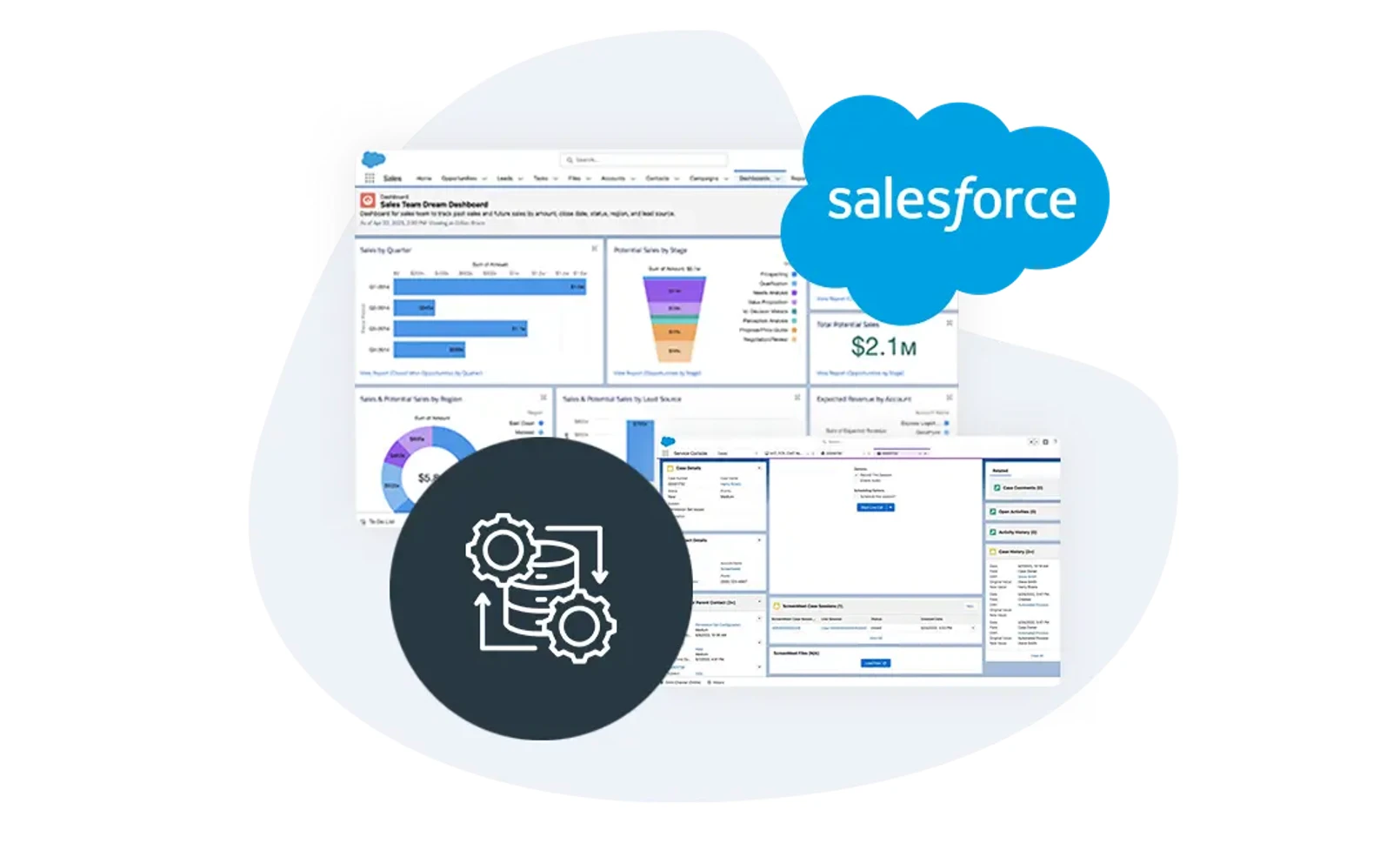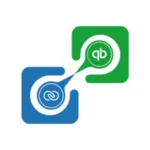In today’s fast-paced digital business world, Customer Relationship Management (CRM) systems have become the backbone of modern organizations. They help companies streamline communication, automate workflows, and gain deep insights into customer behavior — all of which drive stronger relationships and higher sales performance.
However, a CRM solution isn’t a one-size-fits-all system. Every business has its own processes, customer journey, and operational needs. That’s where Salesforce customization services come in — transforming the world’s leading CRM platform into a tailored powerhouse that fits your unique business strategy.
Key Elements and Symbols of CRM
Before diving deeper into Salesforce customization, let’s understand the core elements that make a CRM effective:
| CRM Component | Description | Purpose |
|---|---|---|
| Contact Management | Centralized database of leads and customers | Tracks all interactions |
| Sales Automation | Automates repetitive sales tasks | Boosts productivity and efficiency |
| Marketing Integration | Connects marketing campaigns with customer data | Improves targeting and ROI |
| Customer Support Tools | Ticketing and case management | Enhances customer satisfaction |
| Analytics and Reporting | Tracks KPIs and sales performance | Enables data-driven decisions |
Each of these elements works together to create a seamless experience across departments — from marketing and sales to customer service and beyond.
The Meaning and Function of CRM
CRM, at its core, is a strategy supported by technology. It focuses on understanding customers better and leveraging that understanding to deliver value at every stage of their journey. According to business theorists like Philip Kotler, successful companies are those that build and maintain profitable customer relationships. CRM systems make that philosophy actionable through automation, data tracking, and personalized engagement.
Salesforce, in particular, stands out for its flexibility and scalability. Through its customization services, businesses can design workflows, dashboards, and apps that perfectly match their goals. Whether you need industry-specific modules or unique sales processes, Salesforce customization ensures your CRM adapts to your business — not the other way around.
Table: Comparison of CRM Types
| Type of CRM | Focus Area | Example Platforms |
|---|---|---|
| Operational CRM | Streamlines sales, marketing, and service automation | Salesforce, HubSpot |
| Analytical CRM | Analyzes customer data for insights | Zoho Analytics, SAP CRM |
| Collaborative CRM | Improves interdepartmental communication | Microsoft Dynamics, Freshsales |
Expert and Theoretical Perspectives
Business experts agree that CRM is more than just software — it’s a mindset. Gartner defines CRM as a strategy for managing a company’s interactions with current and potential customers using technology to organize, automate, and synchronize sales, marketing, and service.
Meanwhile, Salesforce customization aligns with modern management theory, which emphasizes adaptability and continuous improvement. By customizing dashboards, automating lead scoring, and integrating third-party apps, companies can enhance user adoption and ROI.
Psychological and Modern Management Perspectives
From a psychological standpoint, CRM impacts how customers perceive a brand. Personalization — made possible through tools like Salesforce — taps into customers’ emotions by making them feel seen and understood. When businesses tailor their communication and support to individual needs, customers are more likely to stay loyal and recommend the brand to others.
Modern management also values CRM as a key driver of long-term customer retention. Managers use insights from CRM data to refine strategies, anticipate customer needs, and foster trust through consistent engagement.
Best Practices and Implementation Strategies
To replace the concept of “lucky numbers” with practical action, let’s look at the codes of practice — or proven strategies — for successful CRM adoption:
| Practice Code | Strategy Description |
|---|---|
| #1: Define Clear Goals | Identify what you want to achieve before implementation. |
| #2: Customize for Users | Adapt dashboards and workflows to fit team needs. |
| #3: Integrate Tools | Connect CRM with your email, ERP, and marketing platforms. |
| #4: Train Consistently | Ensure every team member understands how to use the system effectively. |
| #5: Review and Evolve | Use analytics to improve processes continuously. |
Comprehensive Data Table: CRM Overview
| Category | Example | Benefit | Feature Highlight |
|---|---|---|---|
| Type | Operational | Streamlines daily tasks | Workflow automation |
| Type | Analytical | Improves decision-making | Predictive analytics |
| Vendor | Salesforce | Customizable and scalable | AppExchange ecosystem |
| Vendor | HubSpot | User-friendly | Free tier for small businesses |
| Vendor | Zoho CRM | Affordable | Multichannel communication tools |
CRM Implementation and Optimization Guide
-
Assess Your Business Needs: Determine your sales cycle, customer touchpoints, and workflow challenges.
-
Choose the Right CRM Platform: Consider scalability, integrations, and user experience.
-
Customize and Configure: Use Salesforce customization services to tailor fields, layouts, and automation.
-
Migrate and Clean Data: Ensure only accurate, up-to-date data enters the new system.
-
Train Your Team: Encourage adoption through hands-on workshops and clear documentation.
-
Monitor and Improve: Regularly analyze performance metrics and adjust settings as your business grows.
Comparing Popular CRM Platforms
| Platform | Strengths | Weaknesses | Best For |
|---|---|---|---|
| Salesforce | Highly customizable, scalable, powerful automation tools | Can be complex for beginners | Medium to large enterprises |
| HubSpot CRM | Easy to use, free version available, great marketing tools | Limited customization | Startups and small businesses |
| Zoho CRM | Affordable, flexible, integrates well with other Zoho apps | User interface can feel dated | SMBs seeking cost-effective options |
Each platform offers unique benefits, but Salesforce customization services give you the power to mold a robust CRM solution around your specific business goals.
Conclusion
salesforce customization services0, In the era of digital transformation, CRM systems are no longer optional — they’re essential. Salesforce stands out not only for its wide range of built-in tools but also for its incredible flexibility through customization. By investing in Salesforce customization services, businesses can create a CRM ecosystem that perfectly fits their workflow, enhances customer relationships, and accelerates growth.
Ultimately, a well-customized CRM becomes more than software — it becomes the foundation of your company’s customer-centric strategy. Whether you’re scaling a startup or managing a large enterprise, Salesforce customization can help you unlock the full potential of your CRM investment.
Frequently Asked Questions (FAQ)
1. What are Salesforce customization services?
These services involve modifying Salesforce’s CRM system to match specific business needs — from custom workflows and dashboards to integrations with other software tools.
2. Why is CRM important for businesses?
CRM systems help businesses manage customer interactions, improve satisfaction, and increase sales through data-driven insights.
3. How is Salesforce different from other CRMs?
Salesforce offers unmatched flexibility, scalability, and integration options compared to most CRM platforms, making it ideal for businesses of any size.
4. Can small businesses benefit from Salesforce customization?
Absolutely. Customization can simplify workflows, improve lead management, and tailor dashboards to small business needs.
5. What’s the best way to implement CRM successfully?
Start by defining clear goals, customizing features for your team, integrating tools you already use, and providing proper training for all users.



